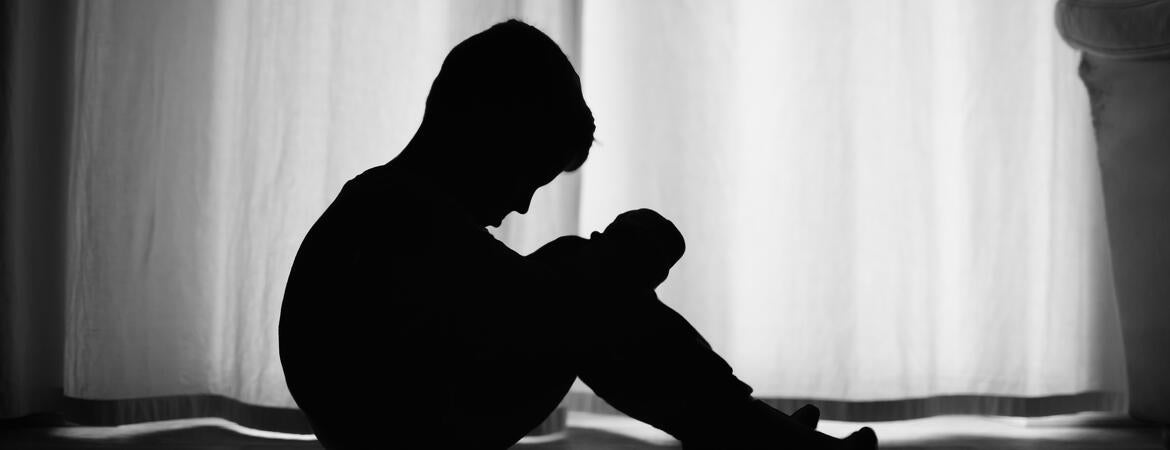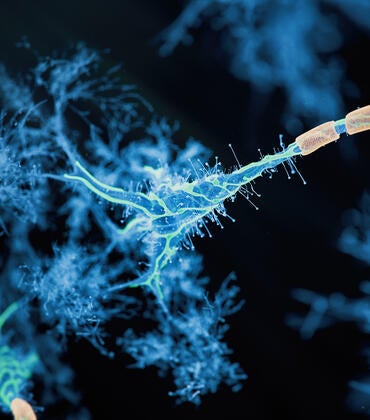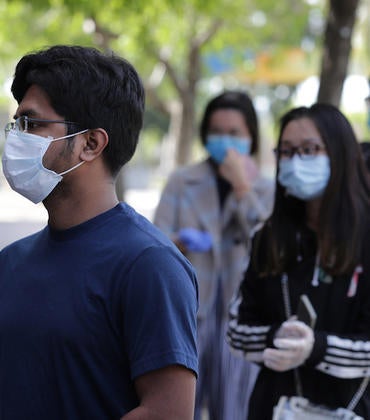
Aggressive immigration practices — such as detention, deportation, and workplace raids — are contributing to widespread emotional trauma among both immigrant and U.S.-born children living in mixed-status households, according to a report published by a team of mental health professionals in the School of Medicine at the University of California, Riverside.
Published in Psychiatric News, the report warns that immigration enforcement in the United States is a public health emergency for millions of children.
“Psychiatry, as both a clinical discipline and a social institution, cannot remain on the periphery,” the authors write. “The current moment calls for a reexamination of how structural and intergenerational trauma are diagnosed, understood, and treated.”
The report explains how U.S.-born children in mixed-status families face constant anxiety about their parents being detained or deported. It notes that both pre- and post-migration family separations harm children’s emotional development and academic performance. Immigrant caregivers, especially mothers, often suffer from trauma, which limits their ability to support their children emotionally, the authors write.
As national debates around immigration continue, the report urges the media, policymakers, and clinicians to confront the human costs of enforcement-driven immigration systems and to prioritize the emotional wellbeing of the youngest and most vulnerable.
“We are witnessing the effects of chronic fear, disrupted attachment, and intergenerational trauma on a massive scale,” said Dr. Lisa Fortuna, professor and chair of psychiatry and neuroscience at the UCR School of Medicine and the lead psychiatrist behind the report. “The threat or reality of separation from a caregiver fundamentally reshapes a child’s development and mental health.”
The report includes clinical case studies and community-based data that reveal how trauma is transmitted across generations and shaped by conditions such as poverty, discrimination, and fear of enforcement. It also outlines emerging models of care that are proving more effective and ethical than traditional mental health interventions.
“Psychiatry must take an active role — not just in treatment, but in advocacy,” said coauthor Dr. Kevin Gutierrez, an assistant clinical professor of health sciences in the UCR Department of Psychiatry and Neuroscience. “The mental health of immigrant children is inseparable from the systems that shape their lives.”
In the following Q&A, Fortuna and Gutierrez, who are also providers at UCR Health, answer some questions pertinent to the report.
Q: What inspired you to explore the mental health effects of immigration enforcement on children and families?
Fortuna: As chair of the APA Council on Children, Adolescents, and Their Families, I was drawn to this issue due to its growing urgency nationwide. Children and families affected by immigration enforcement are especially vulnerable to trauma, and we wanted to address the psychiatric impact beyond politics, focusing on how policy shapes mental health and how psychiatrists can respond.
Gutierrez: When Dr. Fortuna invited me to join the project, I saw it as a chance to reframe psychiatry’s role — not just diagnosing but addressing the broader social forces causing harm. We aimed to challenge the systems behind these policies and highlight our responsibility to engage beyond the clinic, especially in advocating for vulnerable children.
Q: Is there a clinical example that illustrates what this trauma looks like in practice?
Fortuna: In our article, we share a composite case called “Ana,” based on real clinical experiences. It highlights the intense anxiety children face, such as fearing parental deportation, avoiding school or therapy, and feeling unsafe even when seeking help.
Clinicians often help families create safety plans in case of separation, which, while necessary, reinforces the deep instability they’re living with. Even those pursuing legal immigration paths feel unsafe, and U.S. citizen children worry they could be targeted too, leading to constant fear and withdrawal.
Q: How are caregivers coping with this?
Fortuna: Many are experiencing intense anxiety, stress, and depression. Some are even reporting suicidal thoughts — feeling hopeless and helpless about their situation. There’s significant fear within families: children worry their parents won’t come back from work, and parents are terrified of being separated from their children. This fear leads to tension and emotional strain at home.
Gutierrez: In my practice with adults, I’ve had patients share concerns about how their children are coping. One parent told me their sons were being bullied at school by kids wearing MAGA hats, who threatened to call ICE on them. These boys are Latino, and although this kind of threat might sound abstract to some, it’s rooted in real incidents.
Children are dealing with separation anxiety not as a developmental phase, but as a daily reality. One parent asked me what to do when their child came home asking, “Are they going to call ICE on us?” The parent didn’t have an answer and neither did I. That’s part of the trauma: not having answers, not knowing what’s safe or predictable anymore. Kids need stability to thrive. When their world feels uncertain and parents can’t guarantee safety, it creates chronic anxiety that harms emotional and brain development.
Fortuna: False reassurance, for example, telling a child everything is fine, can backfire. Children sense when things aren’t okay. It’s better to be honest in an age-appropriate way and validate their fears. We help families make practical plans — who the child can turn to, where they’ll be safe, how to stay in touch — to give them some sense of control amid the chaos.
Q: Are there specific age groups where the mental health impact is particularly severe, or is it affecting children across the board?
Fortuna: It affects all age groups, but differently depending on development. When infants and toddlers suffer from disrupted attachment, it can lead to issues like sleep or eating problems. School-age kids are more aware and show anxiety or fear, even if they can’t fully express it. Adolescents often take on adult roles, suppressing their emotions and facing depression or anxiety.
Gutierrez: Adolescents in particular face “parentification,” taking on adult responsibilities like caregiving or running errands due to fear of enforcement. This is common even in mixed-status or citizen families because fear affects everyone, regardless of legal status.
Fortuna: Many teens fear losing their parents or being forced into foster care. Even kids not directly affected feel the impact when their communities are disrupted, creating a sense of collective trauma and loss of safety.
Q: How should immigration policy and mental health policy intersect going forward?
Gutierrez: It’s hard to see how current enforcement can ever be humane. These practices create chronic stress and trauma in children and meet criteria for PTSD. The harm is systemic, not isolated, and affects even those not directly targeted.
Fortuna: Mental health professionals must recognize policy as a key driver of mental health. Enforcement decisions are violating children’s basic rights: safety, family, education, and identity. Until we connect policy choices with health outcomes, especially for marginalized kids, we’re overlooking the full impact.
Q: If nothing is done to address these mental health impacts, what are the long-term consequences?
Fortuna: Unaddressed childhood trauma can lead to lifelong issues like PTSD, anxiety, and depression. When kids withdraw from school, healthcare, or relationships due to fear, they miss key developmental milestones. These effects can even be passed down through generations.
Gutierrez: Children learn by watching their caregivers. When that stability is disrupted, it impacts how they relate to others and see the world. Without safe, nurturing environments, we limit their potential emotionally, socially, and cognitively.
Q: Given what you have learned in writing this report, what gives you hope?
Fortuna: I find hope in communities, their resilience, their support for each other, and their refusal to give up. I’m also inspired by my colleagues and the next generation of professionals who are deeply committed to change.
Gutierrez: The kids themselves give me hope. Despite everything, they survive, and their communities build support systems long before we show up. Our job is to strengthen those systems. Even small interventions can change a child’s future, and that keeps me going.
Header image credit: kieferpix/iStock/Getty Images Plus.





